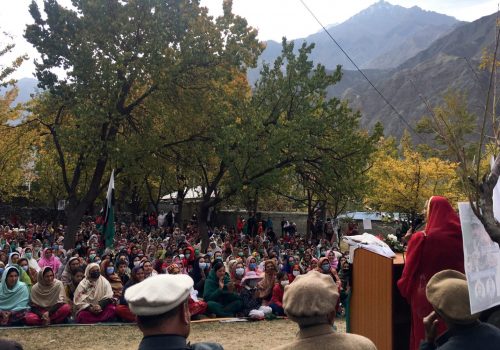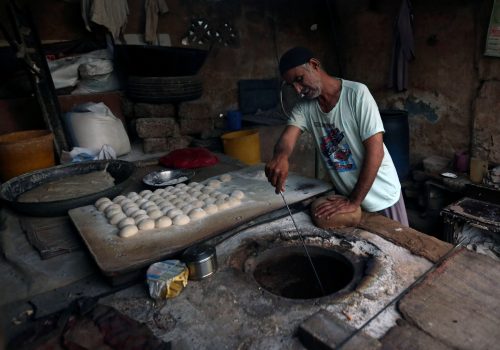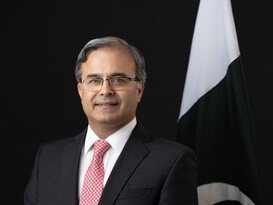Beyond Pakistan’s 2021-22 budget: The economy and growth
On June 29, 2021, Pakistan’s National Assembly passed the country’s 2021– 2022 budget, which had been prepared and tabled by Finance Minister Shaukat Tarin. Recently appointed to his position, Tarin has positioned the budget as being growth oriented in focus, with significant increases to subsidies, public-sector development, and salaries of government employees. After successive budgets that had focused on austerity—in part due to the conditions imposed under the International Monetary Fund’s (IMF) macroeconomic stabilization program—the Pakistan Tehreek-e-Insaf (PTI) government has signaled that it will increasingly focus on generating economic growth in the second half of its five-year term.
The budget, however, has raised concerns among domestic and international economic analysts, primarily due to its large spending increases and lack of focus on economic reforms that improve tax collection, rationalize energy tariffs, and reign in the burgeoning debt in the power sector, which has crossed the $14-billion level in recent months. Critics have also argued that, while the budget has created optimism in terms of growth prospects, it does not signal a commitment to taking credible steps to address major challenges that have created headwinds against sustainable growth. They also argue that the budget increases the risk of Pakistan abandoning its agreement with the IMF, potentially leading to higher borrowing costs in the international bond market and risking a repeat of previous economic crises that Pakistan has faced.
To talk about this budget and the broader prospects of sustainable growth in Pakistan, the Atlantic Council, the Center for Global Development (CGD), and the Pakistan Institute of Development Economics (PIDE) organized a private, off-the-record roundtable. This discussion was attended by economic experts from within and outside Pakistan, and some of the key takeaways of the discussion are as follows:
- there was broad consensus that the budget reflected a break from the austerity-focused budgets that had been presented since the PTI-led government came to power in 2018;
- the assumptions and projections made in the budget are ambitious, especially as they relate to the government’s ability to raise the fiscal resources necessary to meet its spending goals and achieve its fiscal-deficit target;
- ongoing negotiations with the IMF to continue the program are going to be challenging, given that the budget did not address many of the conditions agreed to with the IMF;
- increased government spending could lead to a broadening of the current-account deficit, leading to a decline in foreign-exchange reserves, and forcing the central bank to take proactive measures in order to deal with external-sector risks prior to an election; and
- there is a dire need for consensus among elected and unelected elites in Pakistan to reform the economy to chart a more sustainable and inclusive growth trajectory.
Related content

The South Asia Center is the hub for the Atlantic Council’s analysis of the political, social, geographical, and cultural diversity of the region. At the intersection of South Asia and its geopolitics, SAC cultivates dialogue to shape policy and forge ties between the region and the global community.


